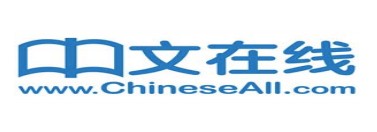E-books, online platforms and mobile reading in China. Interview with Tong Zhilei (ChineseAll)
In digital publishing terms, China no doubt represents one of the world’s most dynamic hubs, and any innovation produced within this segment of Chinese industry is likely to have a global impact. However, the new generation of Chinese entrepreneurs prominent in this field tends to be almost unknown in the West. On this occasion, we spoke to Tong Zhilei, the founder and director of ChineseAll, one of the leading digital publishing companies in China.
Mr Tong Zhilei, please tell us a bit about your background and about ChineseAll
ChineseAll is one of the largest digital e-publishing companies in China now. We have collaborated with around 300 publishers, more than 2,000 famous authors and 300,000 cyber-writers in the country. I graduated from Tsinghua University, one of the most famous universities in China. And while I was a student I founded my company. So ChineseAll has about 15 year’s history. It’s based in Beijing.
Who are the main players in the e-book industry in China apart from ChineseAll?
The different market segments have different competitors or players. From the industry chain I think the first ones are the publishers. You know, there are more than 500 paper publishers in China, and most of them provide an e-book service – and in general a digital publishing service. And second is what we name digital publishing technology providers, such as ChineseAll, such as Apabi – from Founder. They provide technology to the different publishing companies. Thirdly, we have digital content creation websites: they produce user generated content (UGC) – that is to say new e-book content – and don’t deliver any paper editions. These include Hongxiu and Qidian – which have more than one million online writers. And the fourth, which I think is a very important link in the market, is e-book distribution platforms or channels, such as Baidu, Tencent, Taobao, and other very important distribution platforms such as China Mobile, which owns probably the largest online mobile reading platform, called China Mobile Read. So: publishers, technology providers, UGC websites and distribution channels/platforms. I think these are the most important players within the market.
Would you place ChineseAll exclusively in the second category?
At ChineseAll, we consider ourselves first as a technology and service provider. But we also have a UGC website, 17K.com.

ChineseAll has launched its “cloud reader”. What is that?
To be able to provide our service to our readers, we also have our platform that can be accessed directly – its Chinese name is Shuxiang China, which means “book channel”. With this platform we cover more than 45,000 primary schools, 1000 universities and libraries. We provide a digital library and an online reading service to the students and the teachers.
Do you have any figures about the Chinese e-book market?
Every year, this market grows really fast – more than 40% annual growth. And next year the total market will be worth more than ¥ 250 billion (US$ 40.5 billion).
I guess this figure corresponds to digital publishing in general, not just to e-books?
Exactly. E-books are maybe only a very small percentage of the total digital publishing market. The figure also includes online games, for example. The Chinese think that online games also provide content, so they are also categorized as digital publishing.
And what is the attitude of publishers regarding the digital age? Do you think they feel optimistic or pessimistic? Is there any resistance?
I think most of the publishers in China are positive about the future. First, because in China publishing has strong support from the government. So they can get a lot of special content and assistance. And second, most of the bigger publishers have a lot of money and want to expand their business to the new information industries. They have a lot of new choices and they believe that in five to ten years they will be safe.
How many people work in ChineseAll?
More than 500.

Do you work with other companies outside China?
Yes. I also want to provide our technology and services to publishing companies from overseas. Now we have some cooperation with foreign companies, but only a little. So I hope more and more foreign publishers can cooperate with ChineseAll.
Do you see any potential for foreign content in China?
Yes, I think there will be strong demand. For example – maybe you know this –, a lot of famous foreign films are very popular in China. Chinese people like foreign content more and more.

